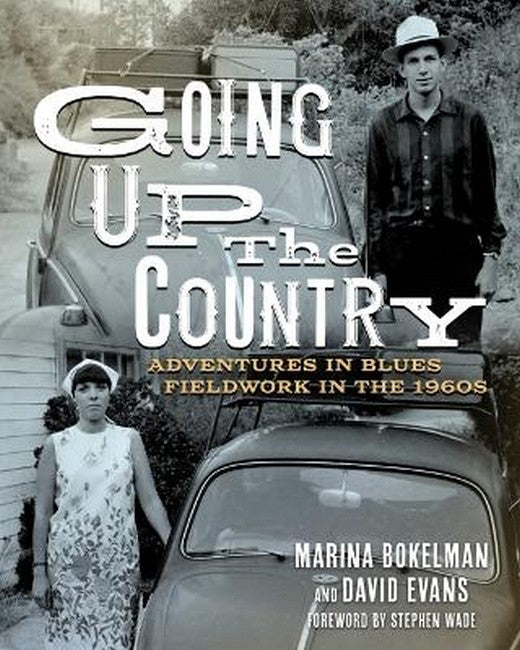Marina Bokelman has maintained a career as a practicing folklorist and a cappella ballad singer in her community in the Sierra Nevada foothills of Northern California. She received a grant from the California Arts Council to document the social and cultural life of that community and produced an educational folk music program for local community radio station KVMR. She is active in the healing arts and is a pipe carrier in the Native American tradition. David Evans is author of several books and other publications and productions on blues music and has received two Grammy Awards for Best Album Notes. His musical performance career has taken him to twenty-three countries and resulted in six CDs. Evans taught at California State University, Fullerton, and the University of Memphis, where he retired as professor of music emeritus.
Request Academic Copy
Please copy the ISBN for submitting review copy form
Description
Keeping the spotlight on themselves serves to remind us that they too are storytellers and quite good ones as well. But this book is not only for folklorists and blues scholars. It's fun rather than academic, and along the way we get to meet some great artists including Robert Pete Williams, Fred McDowell, John Henry "Bubba" Brown, K.C. Douglas, Rube Lacy, Woodrow Adams, Houston Stackhouse, Nathan "Dick" Bankston, Jack Owens, Mott Willis, and Babe Stovall; and not only musicians but others including children, neighbors, and even rock stars.--Barry Lee Pearson "Journal of Folklore Research Reviews" [T}he book is an informative window into blues research for early-career scholars, academics interested in Evans' and Bokelman's work, and blues enthusiasts looking for greater insight into how this historic research was conducted.--Nicholas Booker "Journal of American Folklore" The journeys and their hardships are depicted in the form of meticulous "diary entries", which make for fascinating reading and are excellently complemented by Bokelman's evocative photos.--Charley Nilsson "Jefferson" This is a book to acquire and savor.--Chris Smith "Blues and Rhythm" A tremendously compelling book. . . This is a study of life, real life, in a pivotal place and a crucial time, with two bright and intrepid young scholars taking copious notes along the way.--David Wesley Williams "Chapter 16" The core of the book is an evocative tour through the lives of blues and gospel singers, with a level of detail and attention to both the music and their lives rivaling any blues study before or since.--Alex Greene "Memphis Flyer" This is a monumental work that plunges the reader into the sixties through the blues culture of the Deep South. It is a deeply American tale of discovery, sadness, and celebration that truly touches the heart.--William Ferris, author of Give My Poor Heart Ease: Voices of the Mississippi Blues If I told y'all everything I like about this book, it'd be too many pages long, so just let me say that if you love blues like I do, this is a joy to read, and every page is fascinating. I highly recommend it.--Charlie Musselwhite, Grammy Award-winning blues harp player Readers who are familiar with the blues will be fascinated by Evans and Bokelman's accounts of their personal encounters with musicians.--David Ferris "Journal of Southern History" Marina Bokelman and David Evans share their highly personal perspectives regarding their fieldwork into the downhome blues traditions found largely in rural Louisiana and Mississippi during the summers of 1966 and 1967 in Going Up the Country. Their engaging call and response reveal a great deal not only about the nature and importance of their months-long odysseys, but also about their musical, academic, and personal lives before and after their experiences. Going Up the Country is an intimate, detailed, and truly singular account that has been a long time coming.--Kip Lornell, professor at George Washington University and author of eighteen books on American vernacular music In Going Up the Country, Evans and Bokelman offer a vivid snapshot of an era of ethnographic fieldwork with its own assumptions, procedures, vocabulary, etiquette, sensitivities, and blind spots. Anyone who fell in love with blues music in the 1960s or who recognizes its enduring importance today will find this book an honest, sometimes painful, sometimes funny opportunity to ride along.--Erika Brady, professor of folk studies at Western Kentucky University

